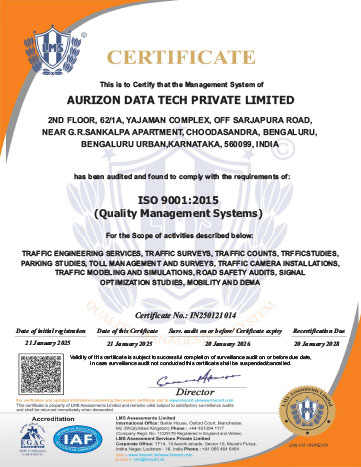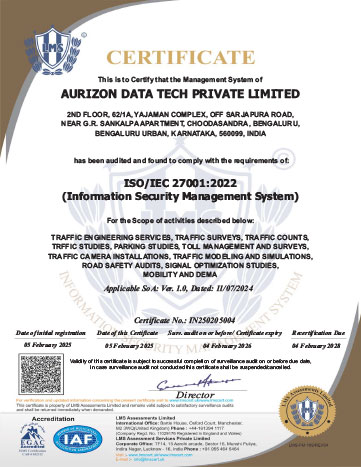
Shaping Smarter Cities with Traffic Survey Data
Introduction
Urbanization continues to grow at an unprecedented rate, and with it, the need for smarter, more sustainable city planning. Traffic survey data plays a pivotal role in shaping these cities by providing critical insights into how people move, interact with infrastructure, and use public spaces. By leveraging this data, urban planners can create more efficient, livable, and resilient cities.
The Growing Need for Smart Urban Planning
As cities become more crowded, the challenges of managing transportation, infrastructure, and environmental sustainability grow exponentially. Key concerns include:
- Traffic congestion and its impact on mobility.
- Environmental degradation from vehicle emissions.
- Inefficient use of urban spaces.
Traffic survey data offers solutions by providing an in-depth understanding of traffic patterns, commuter behavior, and infrastructure needs, which are essential for planning cities that serve their residents effectively.
How Traffic Survey Data Transforms Urban Planning
-
Optimizing Traffic Flow
Traffic data allows planners to identify congested areas and adjust infrastructure to improve flow. This can include adding new lanes, optimizing traffic light timings, or creating alternative routes. -
Planning for Sustainable Transportation
With insights from traffic surveys, cities can promote sustainable mobility options, such as expanding public transit, cycling lanes, and pedestrian-friendly zones. -
Improving Land Use
Traffic data helps planners understand how different parts of the city are used, enabling them to allocate land for development that balances residential, commercial, and green spaces efficiently. -
Designing Smart Mobility Solutions
The integration of traffic survey data with smart technologies such as real-time traffic monitoring, autonomous vehicles, and smart traffic lights creates a more fluid and responsive urban environment. -
Reducing Environmental Impact
Data-driven planning allows cities to reduce traffic congestion, lower emissions, and prioritize green spaces, contributing to a healthier urban environment.
Case Studies: Traffic Data Shaping Smart Cities
- Singapore: Traffic survey data has been used to develop a world-class smart traffic management system, improving mobility and reducing congestion.
- Barcelona: The city uses traffic data to optimize traffic flow, reduce emissions, and create more green spaces, contributing to its “Smart City” status.
Benefits of Data-Driven Urban Planning
- Efficiency: Traffic data helps identify and eliminate inefficiencies, such as underutilized roads or public transportation routes.
- Sustainability: Improved traffic flow and smarter land use reduce environmental impact and make cities more eco-friendly.
- Quality of Life: Well-planned cities are more livable, with less congestion, better access to services, and more recreational spaces.
Challenges in Implementing Data-Driven Urban Planning
Despite its potential, the use of traffic survey data in urban planning faces challenges such as:
- Data Overload: The large volume of data can be overwhelming without the right tools to analyze and interpret it.
- Cost of Infrastructure: Implementing data-driven solutions requires investment in technology and infrastructure.
- Interagency Collaboration: Successful urban planning requires coordination between various city departments and private sector stakeholders.
The Future of Traffic Survey Data in Urban Planning
As technology advances, the role of traffic survey data in urban planning will continue to grow. Future innovations include:
- AI and Machine Learning: Predictive analytics will allow for smarter traffic management and urban design.
- Integrated Mobility Systems: Traffic data will be integrated with multimodal transport systems, creating seamless travel experiences across various transport modes.
- Smart Infrastructure: The development of connected infrastructure, such as smart traffic lights and intelligent transportation systems, will optimize traffic flow in real-time.
Conclusion
Traffic survey data is essential for creating smarter, more sustainable cities. By using this data to inform urban planning decisions, cities can reduce congestion, lower emissions, and create more livable spaces. With the right tools and technologies, traffic data can guide the development of urban environments that meet the needs of today while preparing for the challenges of tomorrow.



